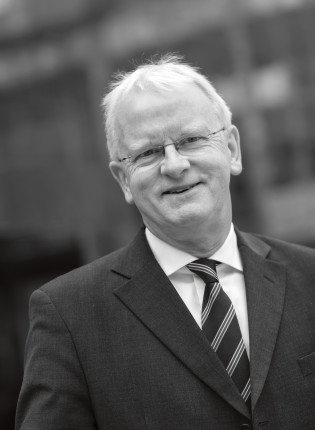‘‘Imperial is an innovation powerhouse – I have learned as much in my time here as any student’’
 Imperial has more than 100 years of history of leading from the front, with ideas that shape the wider world, and in my five years here I’ve learned as much as any student.
Imperial has more than 100 years of history of leading from the front, with ideas that shape the wider world, and in my five years here I’ve learned as much as any student.
Together, we have taken some ground-breaking strides that, in true Imperial tradition, disrupt to keep us at the forefront of research and education.
Every day we see examples of our research benefiting the wider world. For example, the Grantham Institute’s research on climate change provides hard scientific evidence that is having a huge impact on the global environmental debate. The Data Science Institute is forging collaborations with research partners in healthcare, financial services and city infrastructure. And our new Michael Uren Biomedical Engineering Research Hub will soon bring together engineers, scientists and medics in an unprecedented collaboration to carry out life-changing research into new and affordable medical technologies. Combining expertise from different disciplines inevitably sparks truly innovative solutions to some of our most complex global issues, and this is where Imperial excels.
Imperial is changing education, too. Our Vice-Provost (Education), Professor Simone Buitendijk, is overseeing the implementation of a new College-wide Learning and Teaching Strategy that uses the latest pedagogical innovations to put students at the heart of their education; for example, flipping the classroom experience with digital resources they can study ahead of lectures. This means they get much more out of face-to-face time with their academic teachers, which becomes more discussion than lecture – a twoway conversation that, again, has huge potential to produce new ideas.
Our innovation in research and education means that we are a natural port of call for global leaders visiting the UK. During my time here we have been honoured by visits from the Presidents of China, South Korea and Singapore, which raises our profile even further in these parts of the world. This is one of the many elements that make my job so varied and interesting – one minute I’m meeting one of the most powerful people on the planet, the next I’m dealing with a complaint about blocked toilets!
My academic background is theoretical physics, so unexpectedly finding myself in charge of the welfare of the animals we use in research in 2014 was a steep but fascinating learning curve! It has been a pleasure to work with our dedicated animal facilities technical support staff and our world-leading life sciences researchers to create a culture that is now regarded as an exemplar in the sector.
I am proud of the work done with staff and students to make Imperial truly open and transparent "
But, aside from all this, for me the most significant, vital change at Imperial has been how the College treats its staff, and how they treat each other. Our history as a male dominated, hierarchical institute had led to instances of unacceptable behaviour. Two years ago we commissioned a rigorous independent review that, while commending much of what we were doing to address our shortcomings, shone a light on some dark corners – for example, revealing that some staff felt unable to speak out against unacceptable behaviour they had experienced. We have worked closely with our staff and students to eradicate such practices and make Imperial a better place to work and study for everyone.
This is not an overnight fix but a process that will take time. However, the openness, transparency and planning that has gone into setting us on the journey to where we want to be are all legacies of which I am proud. Building an environment in which every single person can feel relaxed, comfortable and fulfilled can only be good, not just for the wellbeing of our staff and students but also as a foundation for the excellent education and research work we continue to do.
All of our recent achievements tie in with the five-year College strategy we announced in 2015, to attain enduring excellence in science, medicine, engineering and business.
Imperial is without doubt one of the world’s best universities, with an illustrious past and an exciting future. I am proud to have been part of it for the past five years.
Professor James Stirling, Imperial’s first Provost, will retire in September. He will be succeeded by Professor Ian Walmsley, currently Oxford’s Pro-Vice-Chancellor (Research and Innovation).